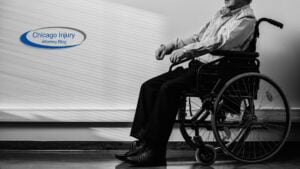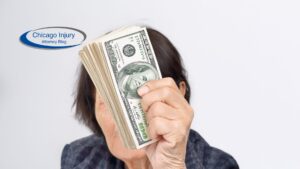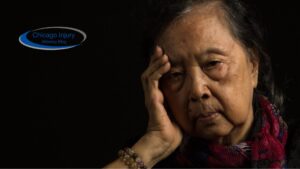Nursing home abuse and neglect are serious issues that can have devastating consequences for vulnerable residents. In this article, we will explore the definitions of nursing home abuse and neglect, the different types of abuse that can occur, and how to recognize the signs of abuse and neglect.
We will also discuss the legal steps that can be taken against nursing home abuse, including understanding Chicago laws, filing a claim, and proving negligence. We will cover the compensation available for victims of nursing home neglect and the importance of taking action by reporting abuse to authorities and contacting a nursing home abuse lawyer in Chicago.
Stay tuned to learn more about this important topic.
Understanding Nursing Home Abuse and Neglect
Understanding nursing home abuse and neglect is crucial for safeguarding the well-being of elderly residents in care facilities.
When nursing home abuse and neglect go unaddressed, they can have devastating consequences on the physical, emotional, and psychological health of vulnerable seniors. The elderly population residing in these facilities often rely on caregivers for daily assistance and support. When that trust is violated through mistreatment or negligence, it can lead to serious injuries, emotional trauma, and even wrongful deaths.
Recognizing the signs of abuse or neglect, such as unexplained injuries, sudden changes in behavior, or poor living conditions, is the first step towards protecting the rights of elderly individuals. In many cases, legal action becomes necessary to hold accountable those responsible for causing harm and to prevent further mistreatment within the facility.
Defining Nursing Home Abuse and Neglect
Defining Nursing Home Abuse and Neglect involves identifying instances where residents experience harm, mistreatment, or inadequate care within care facilities.
Abuse in nursing homes can manifest in various forms, including physical, emotional, sexual, financial exploitation, and neglect. Physical abuse may involve hitting, pushing, or improper use of restraints, leading to injuries. Emotional abuse can take the form of intimidation, humiliation, or isolation. Sexual abuse in nursing homes is a distressing reality that can cause significant harm to vulnerable residents. Financial exploitation occurs when caregivers misuse residents’ funds or assets for personal gain. Neglect, on the other hand, encompasses inadequate food, hygiene, medical attention, or supervision, which can lead to serious health complications.
Types of Nursing Home Abuse (Physical, Emotional, Financial)
Nursing Home Abuse can manifest in different forms, including physical harm, emotional distress, and financial exploitation, each leaving distinct signs of mistreatment on residents.
Physical abuse in a nursing home setting often includes unexplained injuries, bruises, broken bones, or restraint marks. It may be accompanied by a resident’s fear of being touched or reluctance to be examined.
On the other hand, emotional abuse can be harder to detect, with signs like withdrawal, sudden changes in behavior, and depression. Financial exploitation is another prevalent form, indicated by unusual bank account activity, missing valuables, or sudden changes in the resident’s financial situation.
Recognizing these signs is crucial in identifying and addressing nursing home abuse.
Recognizing Signs of Nursing Home Abuse and Neglect
Recognizing Signs of Nursing Home Abuse and Neglect is essential for protecting vulnerable residents from harm and ensuring their safety within care facilities.
One common sign of potential abuse is unexplained injuries, bruises, or marks on the resident’s body. Sudden behavioral changes such as withdrawal, depression, or anxiety can indicate underlying issues. Malnutrition, dehydration, poor hygiene, and lack of medical care are worrisome red flags as well.
It is crucial for caregivers and family members to pay attention to these signs and take immediate action if any suspicions arise. Thorough investigations should be carried out by contacting the facility’s management, reporting to relevant authorities, and seeking legal assistance if needed. Proper documentation of all observed signs and incidents is key to ensuring accountability and protecting the well-being of residents.
Common Signs of Neglect in Nursing Homes
Common Signs of Neglect in Nursing Homes may include unexplained weight loss, poor hygiene, and untreated medical conditions among elderly residents, highlighting systemic failures in care provision.
Signs of neglect can manifest through the presence of bedsores, frequent falls resulting in injuries, sudden changes in behavior or mental status, and dehydration. These indicators suggest a lack of proper monitoring and assistance, leading to compromised well-being of the elderly individuals.
For instance, when residents exhibit signs of malnutrition or dehydration, it often indicates inadequate meal assistance or limited access to fluids. The untreated medical conditions like infections or injuries can worsen rapidly, posing serious risks to the health and safety of the residents.
Common Signs of Abuse in Nursing Homes
Common Signs of Abuse in Nursing Homes can include unexplained injuries, sudden behavioral changes, and withdrawal from social activities, signaling potential mistreatment of residents within care facilities.
It is crucial for caregivers and family members to be vigilant and take immediate action if they observe any of these warning signs. Plus physical injuries, psychological abuse may manifest through fear, anxiety, or depression in residents. These subtle changes should not be ignored and must be thoroughly investigated to ensure the safety and well-being of those under care. It is essential for authorities to conduct prompt and comprehensive investigations to uncover the truth behind any suspected abuse cases.
Legal Steps to Take Against Nursing Home Abuse
Taking Legal Steps against Nursing Home Abuse is crucial to hold accountable those responsible for harming elderly residents and seek justice through legal channels.
When victims of nursing home abuse decide to pursue legal action, one of the first steps is to consult with a qualified attorney specializing in elder law or personal injury cases. These attorneys have the expertise and experience to guide victims through the complex legal process of filing a lawsuit against the negligent parties.
Victims need to gather evidence, medical records, and witness testimonies to support their claims. Once the lawsuit is filed, the legal proceedings begin, including negotiations, depositions, and potentially a trial. Engaging an attorney ensures that victims have strong legal representation and advocacy in seeking compensation for physical and emotional damages incurred.
Understanding Chicago Laws on Nursing Home Abuse
Understanding Chicago Laws on Nursing Home Abuse is essential for navigating the legal framework that regulates care facilities and protects residents from mistreatment.
There are specific laws and regulations in place to prevent and address nursing home abuse in Chicago. The Chicago Department of Human Services (DHS) plays a crucial role in overseeing nursing home facilities and ensuring compliance with state statutes. Federal agencies like the Centers for Medicare and Medicaid Services (CMS) have guidelines that nursing homes must follow to receive reimbursement for services. Chicago Revised Statutes (ORS) provide legal provisions that outline the rights of nursing home residents and define the responsibilities of facilities and staff. These laws aim to promote transparency, accountability, and quality care in nursing homes across the state.
Statute of Limitations for Nursing Home Abuse Claims in Chicago
The Statute of Limitations for Nursing Home Abuse Claims in Chicago establishes the timeframe within which legal actions must be initiated to seek compensation and resolve abuse cases through lawsuit settlements.
The statute of limitations plays a crucial role in ensuring that justice is served for victims of nursing home abuse. In Chicago, individuals who have suffered abuse or neglect in a nursing home have a limited period of time to file a legal claim against the facility responsible. This timeframe is vital as it sets a deadline for taking legal action and holds accountable those who have engaged in abusive practices.
Filing a Claim Against a Nursing Home in Chicago
Filing a Claim Against a Nursing Home in Chicago involves initiating legal procedures to seek justice, accountability, and compensation for victims of abuse or neglect in care facilities.
When intending to file a claim against a nursing home in Chicago, the first step is to gather essential evidence documenting the alleged mistreatment, including medical records, incident reports, and witness statements. Meeting with a qualified attorney experienced in elder abuse cases can provide valuable guidance on the legal process and help victims understand their rights. It is crucial to file the claim within the statute of limitations to ensure it is admissible in court.
Documentation must be thorough and accurate to support the case. The attorney can assist in drafting a formal complaint, which outlines the details of the abuse or neglect suffered and the legal basis for the claim.
Submitting this complaint to the relevant court initiates the legal proceedings. The nursing home will be served with the complaint, triggering their obligation to respond, usually within a specified period.
Throughout the process, maintaining communication with the legal team is crucial to stay informed about updates and next steps.
- If the claim progresses to trial, both parties will present evidence, testimonies, and arguments before the court, with a judgment ultimately determining the outcome.
- Seeking redress through the legal system can be a challenging yet essential step in holding nursing homes accountable for their actions and seeking justice for affected individuals.
Proving Nursing Home Negligence
Proving Nursing Home Negligence requires substantial evidence, thorough investigations, and legal expertise to establish the failure of care facilities in meeting their obligations towards residents.
In terms of demonstrating negligence in nursing homes, the burden of proof is significant. This involves gathering compelling evidence such as medical records, witness statements, and expert testimony to showcase instances of neglect or abuse.
Detailed investigations are crucial in uncovering any lapses in care, which often require reviewing documents, interviewing staff, and examining the facility’s protocols. Without solid evidence, proving negligence can be challenging. That’s why seeking the support of experienced attorneys specializing in elder law can make a substantial difference in building a strong case against negligent practices.
Evidence Required to Prove Nursing Negligence
The Evidence Required to Prove Nursing Negligence includes medical records, witness testimonies, surveillance footage, and expert assessments that collectively demonstrate the substandard care provided by care facilities.
Medical records play a vital role in outlining the treatment history, medication administration, and specific care plans implemented for each resident.
Witness testimonies provide firsthand accounts of observed neglect, abuse, or incidents that highlight deficiencies in care.
Surveillance footage serves as concrete visual evidence, capturing incidents of mistreatment or neglect that occurred within the facility.
Expert assessments offer professional evaluation and opinions regarding the standard of care provided, helping to establish the breach of duty on the part of the nursing home.
Compensation for Nursing Home Neglect in Chicago
Compensation for Nursing Home Neglect in Chicago aims to provide financial redress to victims and their families for the damages caused by negligent care practices, including cases of wrongful death.
When pursuing compensation for nursing home neglect in Chicago, it is crucial to understand the intricacies of damages determination and lawsuit settlements. Factors such as medical expenses, pain and suffering, loss of companionship, and punitive damages are taken into account during the legal process. Attorneys specializing in elder law and neglect cases play a pivotal role in advocating for the rights of the victims and navigating the complex legal framework. Chicago state law outlines specific provisions for wrongful death claims, emphasizing the importance of holding negligent parties accountable for their actions.
Average Settlement for Nursing Home Neglect in Chicago
The Average Settlement for Nursing Home Neglect in Chicago varies based on the extent of harm, financial losses, and emotional suffering experienced by the victims, reflecting the legal remedies sought through lawsuits.
When determining settlement amounts in nursing home neglect cases in Chicago, several crucial factors come into play. The severity of the neglect and abuse suffered by the residents is a significant consideration. This includes physical injuries, emotional distress, and any resulting medical expenses incurred.
The duration of the neglect and the level of care provided by the facility directly impact the compensation amount. Legal professionals also take into account the age of the victim, any pre-existing conditions, and the potential long-term consequences of the negligence.
Taking Action Against Nursing Home Abuse
Taking Action Against Nursing Home Abuse involves reporting incidents to authorities, seeking support from ombudsmen, and initiating legal actions to address the mistreatment of vulnerable residents.
In terms of addressing cases of nursing home abuse, individuals play a crucial role in being vigilant advocates for vulnerable residents. By promptly reporting any signs of mistreatment to relevant authorities, such as the local Department of Social Services or Adult Protective Services, one can help ensure that immediate action is taken to protect the well-being of those affected.
Engaging ombudsmen who specialize in advocating for the rights of residents in long-term care facilities can provide invaluable support. Ombudsmen are trained to investigate complaints, mediate conflicts, and push for necessary changes to improve the quality of care within nursing homes.
Pursuing legal avenues is essential to holding accountable those responsible for abuse. Seeking the guidance of experienced legal professionals who specialize in elder law can help victims and their families navigate the complex legal system and seek justice for any harm inflicted.
Reporting Abuse to Authorities
Reporting Abuse to Authorities is a critical step in holding accountable those responsible for mistreating residents in nursing homes, ensuring swift investigations and interventions to protect vulnerable individuals.
When encountering abuse in a nursing home setting, it is essential to follow a standardized procedure to report the wrongdoing. The first step entails gathering concrete evidence, such as photographs or witness statements, to strengthen the validity of the claim. Next, it is imperative to report the abuse to the appropriate governing bodies, such as state health departments or Adult Protective Services. Confidentiality measures are put in place to safeguard the identity of the whistleblower, ensuring their safety. These authorities take abuse reporting seriously, initiating thorough investigations to verify claims and take necessary actions.
Contacting a Chicago Nursing Home Abuse Lawyer
Contacting a Chicago Nursing Home Abuse Lawyer can provide victims with legal expertise, guidance on filing lawsuits, and representation in proving negligence cases against care facilities.
Expert legal representation is crucial when navigating the complexities of nursing home abuse cases. Chicago nursing home abuse lawyers possess the knowledge and experience to guide victims through the legal process, ensuring their rights are protected and justice is sought.
When filing a lawsuit, these attorneys can assist in gathering evidence, preparing legal documents, and representing victims in court proceedings. Their expertise in proving negligence is essential in holding care facilities accountable for the harm caused to vulnerable individuals.
The role of attorneys extends beyond legal procedures; they serve as advocates for victims, fighting tirelessly to secure compensation and ensure that those responsible are held liable for their actions.
Frequently Asked Questions
What is nursing home neglect and how can it be identified?
Nursing home neglect is a form of elder abuse where a resident in a nursing home is not provided with the necessary care and attention, resulting in physical, emotional, or financial harm. Signs of neglect may include unexplained injuries, poor hygiene, malnourishment, and lack of needed medical care.
What are the legal steps to take against nursing home neglect?
- Report the neglect to the proper authorities, such as the state’s Department of Health or Adult Protective Services.
- Contact a personal injury attorney who specializes in nursing home abuse and neglect cases.
- Gather evidence, such as medical records, witness statements, and photographs, to support your case.
- Consider filing a complaint with the nursing home’s licensing agency.
- File a civil lawsuit against the nursing home for compensation for damages.
- Contact the local law enforcement if criminal charges may be appropriate.
What are the potential legal outcomes for a case of nursing home neglect?
If a case of nursing home neglect is proven, the victim or their loved ones may receive compensation for medical expenses, pain and suffering, and other damages. The nursing home may also face fines, loss of licensure, and criminal charges for their actions.
Can a family member file a lawsuit on behalf of their loved one who is a victim of nursing home neglect?
Yes, a family member or legal guardian can file a lawsuit on behalf of a victim of nursing home neglect. This is often necessary if the victim is unable to make legal decisions for themselves due to physical or mental limitations.
What is the statute of limitations for filing a lawsuit for nursing home neglect?
The statute of limitations varies by state, but it is typically between 1-3 years from the date the neglect occurred. It is important to act quickly and consult with an attorney to ensure your case is filed within the appropriate timeframe.
What are the possible defenses that a nursing home may use against a neglect lawsuit?
Some common defenses used by nursing homes in neglect lawsuits include arguing that the injuries were pre-existing or caused by the victim’s own actions, claiming the staff was properly trained and supervised, or stating that the injury was an unfortunate accident. However, these defenses can often be refuted with strong evidence and legal arguments.





